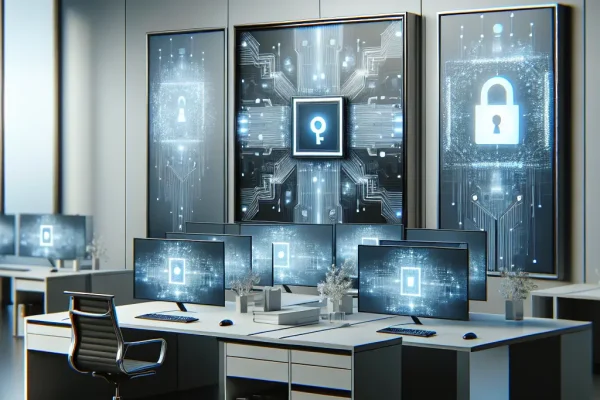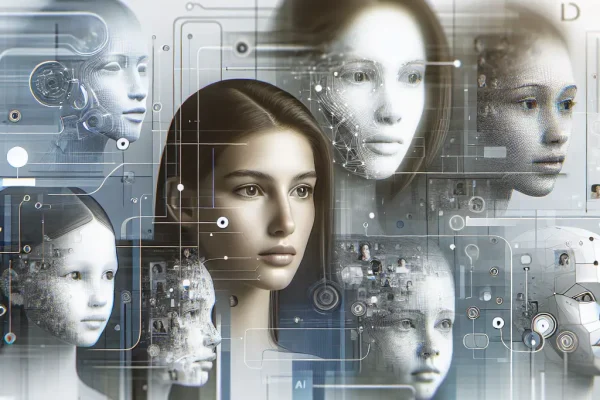Could artificial intelligence make human coders obsolete in the next decade? AI-powered code generation for software development isn’t just a sci-fi notion—it’s already shaking the foundations of the tech industry. According to a groundbreaking 2025 report by MIT Technology Review, advanced AI coding tools are now completing up to 80% of boilerplate code tasks for top Fortune 500 engineering teams (MIT Technology Review). At the same time, these technologies are triggering existential questions for millions of programmers about their future in a world where machines can reason, debug, and even invent solutions. As seismic changes ripple through Silicon Valley and beyond, will developers embrace their new AI-driven colleagues, or resist a wave of machine-driven disruption?
The Problem: Automated Code Writing Tools Are Changing How We Develop Software
Just two years ago, AI-powered code assistants were largely relegated to autocomplete suggestions or basic logic checks. Now, enterprise-grade tools built by OpenAI, Microsoft, and other tech giants can generate entire modules, automate code refactoring, and identify vulnerabilities in seconds (Financial Times). This isn’t only about speed—it’s a paradigm shift in how modern software development is structured.
How Does AI Code Generation Work?
The core of automated code writing tools lies in neural language models—specifically, transformer architectures trained on billions of lines of source code from open-source repositories, documentation, and proprietary datasets. When given a prompt (such as “write a function to sort a list”), these systems predict the most likely solution, generating production-ready code in Python, Java, or dozens of other languages (Wired).
Crucially, the latest systems handle not just routine scripts, but also tackle complex application patterns, integrate with APIs, and apply software best practices—often surpassing junior or mid-level developers’ output.
Why It Matters: Impact on Jobs, Economy, and Tech’s Future
The stakes couldn’t be higher. McKinsey estimates software developer roles are among the top five most at-risk jobs as AI automates knowledge work sectors. With coding tasks accelerated up to 5x, productivity surges—but so does anxiety about job security. The ripple effects extend far beyond individual careers:
- Jobs: Hundreds of thousands of mid-level engineering roles may be redefined, replaced, or offshored as AI closes the talent gap worldwide.
- Economy: Cheap, automated code generation supercharges startups, enabling products to reach global markets faster—and possibly unleashing new waves of innovation.
- Quality & Security: With AI writing and reviewing code, system reliability could improve, but at what cost to human oversight and long-term domain knowledge?
“AI can do in seconds what took my team months,” says a lead developer at a Silicon Valley fintech, echoing concerns cited in Ars Technica‘s analysis. For many, this accelerates the conversation from convenience to existential threat.
Expert Insights & Data: Can AI Code for Complex Software Projects?
Three years into this revolution, the evidence is stark: AI isn’t just for scaffolding interfaces or filling in repetitive CRUD operations anymore. According to Wired, 65% of enterprise developers say AI-powered tools (like GitHub Copilot or OpenAI Codex) augment their work on complicated backend modules, distributed systems, and even critical bug fixing (Wired).
- Stat: MIT Tech Review highlights OpenAI’s system completing up to 70% of function-level code with minimal errors on large codebases in 2025 (source).
- Quote: “Our enterprise clients report saving thousands of engineering hours per quarter, but code review and architectural judgment remain vital,” says Microsoft’s AI strategy lead (Financial Times).
- Survey: Over 80% of developers believe they’ll be collaborating with AI coding tools daily by 2027.
Yet challenges persist. While automated code writing tools excel at pattern recognition and repetition, they struggle with poorly-defined business logic, ambiguous requirements, or radically innovative architectures (Ars Technica).
Open-Source vs Proprietary: Which AI Coding Tools Will Win?
The open-source movement is rapidly closing the gap with proprietary platforms. In 2025, OpenChatCode and HuggingFace released language models with transparency and modifiability, enabling organizations to fine-tune tools for industry-specific needs. However, Microsoft and OpenAI’s closed, enterprise-grade systems still own the majority of market share due to superior performance, code coverage, and robust security policies (Financial Times).
Comparison Table: Open-Source vs Proprietary AI Coding Tools
| Feature | Open-Source Tools | Proprietary Tools |
|---|---|---|
| Customization | Full access to model weights & training data | Limited or unavailable |
| Performance | Varies by project; improving rapidly | Best-in-class, enterprise-optimized |
| Security | Requires internal vetting | Enterprise audits, certifications |
| Cost | Free or minimal | SaaS/enterprise licensing |
| Support & SLAs | Community driven | Direct vendor support |
The Future: Risks, Opportunities, and Human-AI Collaboration
The next five years promise dramatic shifts in how code is written, reviewed, and shipped. Key predictions from industry insiders and recent research include:
- By 2027, most new software projects will be bootstrapped by AI code generators, with human engineers focusing on strategic design and supervision.
- AI software assistants will democratize access to coding for underrepresented groups and non-technical founders worldwide.
- Risks: Overdependence on AI may degrade institutional knowledge and create new attack surfaces as adversaries exploit generative models.
- Opportunities: Human-AI collaboration in coding could elevate senior roles—engineers will increasingly operate as system architects and trainers rather than line-by-line writers.
According to MIT Technology Review, “Developers of tomorrow will write less code, but they’ll need deeper multidisciplinary skills—combining UX, ethics, and data engineering with AI oversight.” The era of the monolingual, heads-down coder is over.
Infographic Idea: “Will Your Coding Job Survive the AI Revolution?”
- Pie chart: % of jobs at risk by 2030 (dev, QA, PM, etc.)
- Stacked bar: Time saved per developer per week (2019 vs. 2025 projections)
- Timeline: Key milestones—first AI bug fix, first major app auto-generated, first mass layoff tied to AI adoption
Related Links
- [External: MIT Technology Review: Inside OpenAI’s Bold Push to Make Coders Obsolete]
- [External: NASA: AI Applications in Engineering]
- [External: WSJ: AI Coding Tools Reshape the Workforce]
Frequently Asked Questions
How does AI-powered code generation for software development work?
AI-driven coding tools are built upon large language models trained on vast codebases. They “understand” code prompts and automatically generate, refactor, or debug code snippets across languages, rivaling human proficiency.
What are the main benefits of AI for programmers?
AI coding assistants boost productivity, automate repetitive tasks, reduce bugs, and let programmers focus on higher-level design. This accelerates delivery cycles and often improves code quality (Ars Technica).
Can AI code for complex software projects?
Yes—recent advances mean generative tools handle multi-step logic, API integration, and system optimization. However, oversight is required for truly novel or ambiguous challenges (Wired).
What are the challenges in adopting AI software assistants?
Key challenges include trust in machine-written code, data privacy, bias in training models, and the risk of eroding engineers’ critical, domain-specific intuition.
What is the long-term impact of AI on software engineering jobs?
Entry-level roles may shrink, but AI is likely to create new opportunities in oversight, integration, and product ownership. Adaptation will be key for future-proof careers.
Conclusion
AI-powered code generation for software development isn’t a distant threat—it’s rewriting the foundations of tech landscapes today. Developers and businesses face an urgent choice: harness these powerful tools for faster, smarter innovation, or risk obsolescence in a machine-driven era. But one thing is certain—human ingenuity and AI will have to collaborate more deeply than ever before. The real question is: who will lead the future of code?


